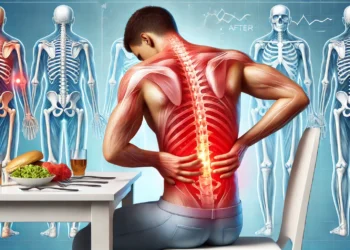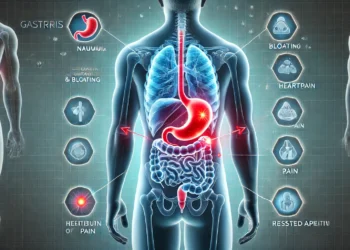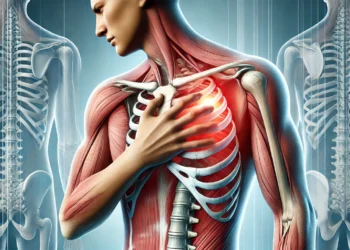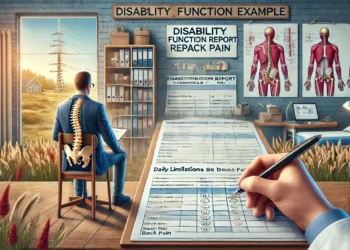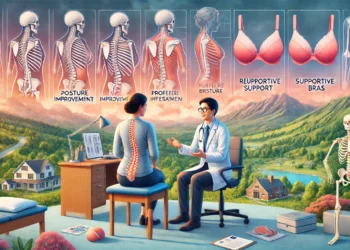Experiencing upper back pain when breathing can be unsettling. Whether it’s sharp, dull, or a persistent ache, this discomfort can interfere with your daily activities and even cause anxiety. If you’ve found yourself wondering, “Why does my upper back hurt when I breathe?”, you’re not alone. Understanding the potential causes of this issue can help you find the right treatment and relief.
What Does It Mean When Your Upper Back Hurts When You Breathe?
Upper back pain that worsens with breathing usually stems from issues related to the muscles, bones, or nerves in your upper back or chest. Breathing involves the expansion and contraction of your lungs and diaphragm, and when any of these structures are compromised, it can lead to pain during this motion.
Common Causes of Upper Back Pain When Breathing
Muscle Strain or Tension
Overexertion, poor posture, or lifting heavy objects can strain the muscles in your upper back. When the muscles are tight, even the act of breathing can trigger pain.
Costochondritis
This condition can cause sharp pain in the chest or upper back, especially when you take deep breaths or cough.
Rib Injury or Fracture
A rib injury, such as a fracture or bruising, can lead to pain in the upper back and chest when you breathe. Even mild injuries can cause discomfort, and the pain may worsen with movement.
Herniated Disc
A herniated disc in the upper spine can be compreless common, it’s important to consider if you have a history of back problems.
Lung Conditions
Conditions like pneumonia, pleurisy, or a pulmonary embolism can cause pain in the chest or upper back, particularly when you breathe deeply. These conditions usually come with other symptoms like fever or shortness of breath.
Heart Issues
Although less likely, heart-related problems, including heart attack or angina, can sometimes present as pain in the upper back. If you’re experiencing this along with other symptoms like chest pain, dizziness, or sweating, seek immediate medical attention.
Symptoms to Watch For
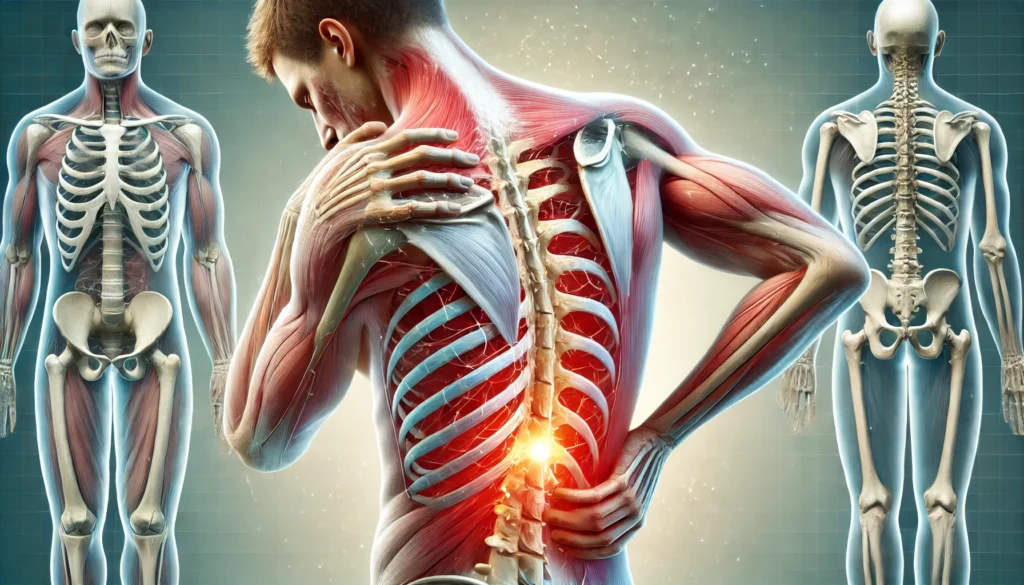
When you experience upper back pain during breathing, the type of pain and any accompanying symptoms can help narrow down the cause:
- Sharp pain: This is often associated with rib injuries, pleurisy, or costochondritis.
- Dull, aching pain: This might indicate muscle strain or a herniated disc.
- Pain worsens with deep breaths: This is common in conditions like pleurisy, pneumonia, or rib fractures.
- Difficulty breathing or shortness of breath: If you’re struggling to breathe properly, it could signal a more serious condition, like a lung infection or pulmonary embolism.
When to Seek Medical Help
While some causes of upper back pain are minor, others can be more serious. It’s important to seek medical help if:
- The pain is severe or doesn’t improve with rest.
- You experience chest pain or shortness of breath.
- You have a history of heart or lung conditions.
- The pain is accompanied by fever or swelling.
Treatment Options for Upper Back Pain When Breathing
Rest and Ice/Heat Therapy
If the pain is due to muscle strain or injury, taking a break from physical activities can help. Applying ice to the affected area for the first 48 hours, followed by heat, can reduce inflammation and relax tense muscles.
Medications
Over-the-counter pain relievers, like ibuprofen or acetaminophen, can help relieve mild to moderate pain. If the pain is caused by inflammation (like in costochondritis), your doctor may recommend anti-inflammatory medications.
Physical Therapy
A physical therapist can guide you through exercises designed to strengthen the muscles in your back and improve posture. This can be particularly helpful for muscle-related pain or issues like a herniated disc.
Breathing Exercises
Deep breathing exercises or diaphragmatic breathing may help you manage discomfort caused by respiratory or lung-related conditions. These exercises can also help relieve tension in the muscles of the chest and back.
Surgical Intervention (in rare cases)
If a herniated disc or severe injury is causing persistent pain, surgery may be necessary. However, this is a last resort and typically recommended only when other treatments haven’t provided relief.
Prevention Tips for Upper Back Pain
While not all cases of upper back pain are preventable, certain lifestyle changes can reduce your risk of experiencing this discomfort:
- Practice good posture: Maintain proper posture while sitting, standing, and walking to prevent unnecessary strain on your upper back.
- Exercise regularly: Strengthening your back and core muscles can provide better support for your spine and reduce the likelihood of injury.
- Lift properly: Always bend your knees when lifting heavy objects to avoid straining your back muscles.
- Stay hydrated: Dehydration can affect the discs in your spine, making them more prone to injury.
FAQs:
1 What causes upper back pain when breathing?
It can be due to muscle strain, rib injury, lung conditions, or even heart-related issues.
2 Can poor posture lead to upper back pain when breathing?
Yes, poor posture can strain the upper back muscles and lead to discomfort, especially during deep breaths.
3 When should I see a doctor for upper back pain while breathing?
If the pain is severe, persistent, or accompanied by chest pain or difficulty breathing, seek medical attention immediately.
4 Is upper back pain related to anxiety?
Yes, anxiety can cause muscle tension in the upper back, leading to pain that worsens when breathing deeply.
5 How can I relieve upper back pain when breathing?
Rest, ice or heat therapy, over-the-counter medications, and breathing exercises can help alleviate the pain.
Conclusion:
Upper back pain when breathing can result from various causes, ranging from muscle strain to more serious conditions like lung infections or heart problems. Identifying the cause of your pain is essential for proper treatment. If the pain is severe, persistent, or accompanied by other symptoms like chest pain or difficulty breathing, it’s important to seek medical advice promptly. By following preventative measures and addressing the underlying causes, you can reduce the risk of experiencing upper back pain in the future.
Read More Relevant Article:
- Read Also: How to Get 100% VA Disability for Back Pain – Steps to Secure 100% VA Disability Benefits for Chronic Back Pain!
- Read Also: Back And Pain Center at Burlington Building – Back & Pain Relief Center at the Burlington Building!
- Read Also: Best Mattress Pad for Back Pain: A Comprehensive Guide – Top Mattress Pads for Back Pain Relief!


